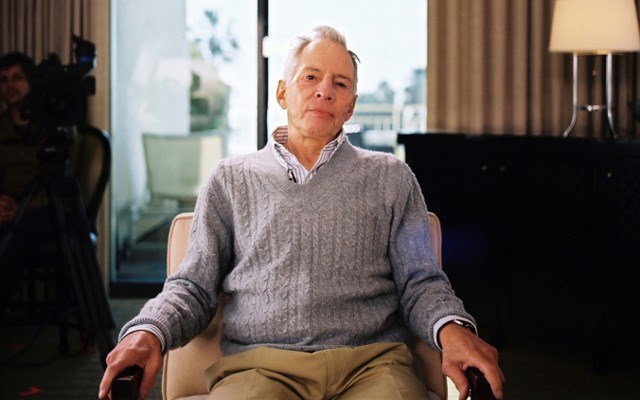Only a handful of episodes into its astonishing run last fall, it was readily apparent that true crime podcast Serial had become something of a cultural phenomenon.
This audio investigation into the 1999 murder of a Baltimore high school student would not only become the most popular podcast in the format's history, but prime fodder for the water cooler in a way that usually only TV and sports can lay claim to.
But as host Sarah Koenig and her crack team of reporters began digging deeper into this puzzling case, another thing became apparent: A tidy resolution to this story was probably not in the cards.
As a society, we've always been fascinated by tales of true crime, but what propelled Serial forward each week was the sense that, as listeners, you were uncovering never-considered details of a 15-year-old case right alongside Koenig et al. Unravelling the Gordian knot was half the fun. Thousands of amateur sleuths from around the globe put forward their half-baked theories, pored over dusty court records and debated the location of a department store payphone that may or may not have ever existed in the first place.
It was the rare narrative seemingly ripped out of the pages of a Dashiell Hammett novel that still felt participatory in nature. But, this being real life and all, Serial was always more concerned with the frayed loose ends than the neatly wrapped bows, and many listeners lamented the looming prospect of an ambiguous finale.
"Don't let this be a contemplation on the nature of the truth," pleaded Mike Pesca, host of Slate's The Gist podcast, in an October interview with Koenig.
That sentiment gets to the heart of what we want and expect from the stories we're told. We crave certainty and demand closure. In a world of greys, we yearn for the black and white.
It's a desire that has attached itself to the medium of television most prominently, with legions of torch-bearing fans ready to set the blogosphere ablaze if their favourite show doesn't end in the exact way they had envisioned. Call it the Lost effect.
But is it fair to judge Serial, essentially a longform piece of investigative journalism, on the same merits as the latest critically acclaimed TV drama? Sure, Koenig utilized the narrative tools of storytelling to great effect on her show, but to clamour for the same conclusive satisfaction as seeing Walter White die on the floor of his beloved meth lab in the closing moments of Breaking Bad is misguided.
It's a pressure you can tell the filmmakers behind HBO's chilling documentary series, The Jinx, felt rather acutely. While the show has been endlessly compared to its true crime cousin Serial, its final gut-wrenching moments proved how drastically different the two actually were.
The subject of Andrew Jarecki's miniseries is eccentric Manhattan real estate scion Robert Durst, who has been described at various times as both the luckiest and unluckiest man in history after being linked (but never convicted) to three deaths under suspicious circumstances. The first was that of his wife, Kathie, who mysteriously disappeared from the couple's upstate New York cabin in 1982. Nearly two decades later he was acquitted of murdering his next-door neighbour after a surreal trial in which he admitted to dismembering the body and dumping it in a bay. Coincidentally, the millionaire was arrested March 14 in connection to the 2000 execution of his friend, Susan Berman, only a day before The Jinx finale aired.
Part of the joy of Serial was having Koenig lay the bloody guts of her extensive research on the table for all to see — it's part of the investigative process the public is not usually privy to. But in The Jinx, for all its shock and awe, the filmmakers mostly kept their cards close to the chest. They fudged the timeline of events, and withheld incriminating evidence from police, all in the interest of maximizing dramatic impact.
That's not to say Jarecki's miniseries wasn't excellent TV. I can't recall a more artistically and morally satisfying end to a show than listening to Durst mumble that he "killed them all" during a candid moment in the washroom recorded by a lapel mic he forgot was still on. It was the kind of horror movie climax that documentaries rarely achieve. But that bone-chilling end, in my mind, does not justify the questionable means Jarecki used to get there, means that were no doubt inspired by our ceaseless quest for narrative finality.
It's also a distinctly North American impulse; Both European and Asian auteurs have had no problem ending their novels or arthouse films on an ambivalent note. The common belief is that ambiguity can often lead to a greater truth, summarized beautifully by writer Brian Phillips, whose words I'll leave you with.
"The first time you read a story like this, maybe, you feel cheated, because you read stories to find out what happens, not to be dismissed at the cusp of finding out," he wrote, describing the conclusion to the classic 1948 Japanese novel, Snow Country. "Later, however, you might find that the silence itself comes to mean something. You realize, perhaps, that you had placed your emphasis on the wrong set of expectations. That the real ending lies in the manner of the story's turning away from itself. That this can be a kind of metamorphosis, something rich and terrifying and strange."




